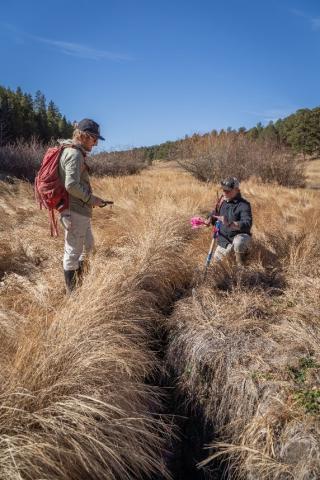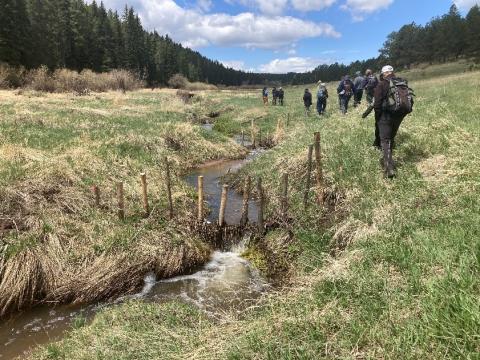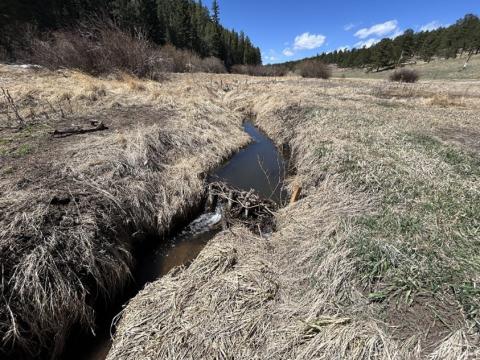Denver Water serves 1.5 million people, a quarter of Colorado’s population. For Denver Water, managing essential water resources while building resilience in the source water watersheds is critical. That’s why, at Beaver Ranch and Reynolds Parks in Jefferson County, Colorado, Jacobs helped Denver Water and Jefferson County Open Space implement two sediment management projects and complete feasibility studies for erosion control and habitat restoration.
Working alongside Jefferson County Open Space, the team introduced innovative, nature-based treatments to reduce stream erosion and trap sediment—improving local wetlands and wildlife habitat along the way.
The goal was to meet the shared needs of both agencies: Denver Water aimed to keep sediment out of a critical reservoir while Jefferson County wanted to restore riparian habitat for threatened species and increase the ecological integrity of the park. The solution? A series of “post-assisted log structures” placed along a one-third-mile stretch of the creek in Beaver Ranch Park.
These low cost structures—made of wooden posts and willow branches—mimic natural processes including beaver dams and log jams. The post-assisted log structures and beaver dam analogs allow water to pass through but slows the flow enough for sediment to settle behind them instead of traveling downstream.
As sediment accumulates, it raises the creek bed and, in turn, the water table of the adjoining floodplain. This process reconnects the stream to its floodplain, thereby enhancing riparian wetlands and creating a lush green firebreak. The result benefits wildlife, reduces wildfire risk and improves the experience for park visitors.
“We’re using a natural process to solve several problems,” explains Jacobs Senior Biologist Pat Hickey. “We’re improving wetlands and wildlife habitat, creating a firebreak and preventing sediment from reaching Strontia Springs Reservoir. Sediment accumulation in the reservoir interferes with reservoir function, including hydroelectric power generation, dam safety, water quality and storage capacity. Restoring ecological function in the headwaters improves ecology integrity and reduces costs to downstream water users. It’s a win-win.”
Jacobs’ restoration work supported Denver Water’s receipt of the prestigious Gambel Oak Award, part of Jefferson County’s annual Conservation Awards. The award honors efforts that protect open space and park lands in the region.
“We’re proud to have helped Denver Water with this pioneering and now, award-winning project,” adds Jacobs West Central Market Growth Director for Water Mia Welch. “Projects like these—where we deliver long-term impact for the environment and the community—are at the heart of what we do at Jacobs.”
About water at Jacobs

Addressing challenges like climate change, water scarcity, aging infrastructure and emerging contaminants, managing this essential resource has never been more complex. From drinking water treatment and reuse to water resource recovery and resilience, we’re working with our clients to protect communities, industries and the environment, and provide them with the water resources they need to thrive.















































